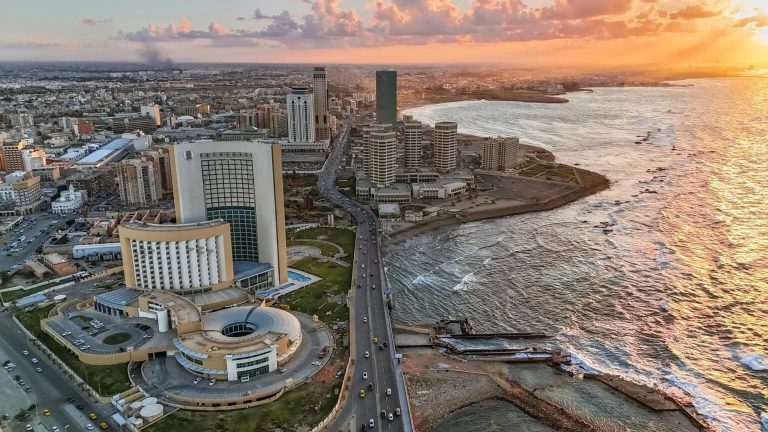A leading Libyan oil operations company recognised that maintaining high levels of health, safety, environment and fire (HS&E/F) management was critical in today’s challenging operational landscape. Faced with the complexities of large-scale oil and gas activities, the company needed to ensure that its HS&E practices not only complied with industry standards but also proactively mitigated risks. To address these challenges, Harouge Oil Operations engaged Qabas to deliver a specialised training and consultancy programme designed to transform its HS&E management systems.
The Situation
Operating in environments where every minute of downtime and every incident can have far-reaching consequences, Harouge Oil Operations was experiencing increasing pressure to improve its safety and emergency preparedness. Traditional safety protocols, although robust in the past, were showing signs of strain under the demands of a dynamic and expanding operational framework. The company’s extensive network – encompassing onshore facilities, pipeline operations, and remote field sites – meant that an integrated approach to HS&E was not just beneficial but imperative. In particular, the challenges included coordinating contractor mobilisation, managing heavy equipment logistics, and planning for emergency shutdowns. Moreover, technical safety reviews and HazOp studies were needed at every stage from FEED through to detailed design to identify and mitigate potential hazards. In this environment, a reactive approach was no longer sufficient; a strategic, systematic overhaul was required to secure operational resilience and safety.
Our Approach
Qabas developed an integrated HS&E training and consultancy programme tailored to the unique needs of Harouge Oil Operations. The programme was structured in a phased manner to ensure comprehensive coverage of both technical safety and logistical preparedness, and was delivered over several weeks with dedicated sessions for each critical module.
The initial phase began with an extensive assessment of existing safety documentation – including Process Flow Diagrams (PFDs), Piping & Instrumentation Diagrams (P&IDs) and current safety philosophies. This review was essential to identify gaps in compliance and opportunities for process improvement. Building on this assessment, Qabas then conducted detailed technical safety reviews and HazOp studies, spanning from the front-end engineering design (FEED) through to the detailed design stage. This rigorous approach helped lay a strong foundation for an integrated HS&E management system aligned with recognised standards such as ISO 14001, ISO 9001/2, ISO 18000, API, ASME and NFPA.
Following the technical review, the programme moved into the implementation and coordination phase. Here, Qabas oversaw contractor activities, enforced quality control measures, and optimised material management and maintenance scheduling. A key aspect of this phase was the utilisation of project planning tools such as PERT/CPM to schedule maintenance activities and develop effective emergency procedures. This ensured that every element of the HS&E strategy was aligned with the operational timelines and logistical demands of Harouge’s diverse operations.
A significant component of the initiative was the on-site training and safety audits. Tailored training sessions were delivered across all organisational levels, ensuring that every employee – from field operatives to management – was equipped with the knowledge and skills required for advanced HS&E practices. These hands-on sessions included emergency preparedness drills, detailed workshops on fire safety and chemical hazard management, and practical exercises in safe material handling. Regular safety audits were integrated into the programme to monitor compliance and measure improvements, ensuring that the new HS&E management systems remained effective over time.
The final phase focused on logistics and emergency management. Detailed planning sessions addressed the complexities of contractor mobilisation and demobilisation, custom clearance, heavy equipment handling, and the critical aspects of emergency planning – including transportation, packaging, waste management and emergency shutdown procedures. This phase ensured that Harouge Oil Operations was not only compliant with international safety standards but also capable of responding swiftly and efficiently to any emergency scenario.
Expert leadership was central to the success of this programme. The training was led by Professor Moharem Mohammed Al Nafati, a recognised authority with over 30 years’ experience in developing, implementing and managing HS&E processes across refineries, offshore installations and petrochemical plants. Professor Al Nafati, a certified EMS (ISO 14001) lead auditor and OHSAS 18000 lead auditor with additional certifications in marine safety, offshore survival and defensive driving, served as the lead consultant for HS&E system implementation, emergency preparedness and safety audits. He was supported by a team of specialised HSE professionals who oversaw detailed inspections, fire safety evaluations, logistics coordination and compliance audits, ensuring that every technical aspect of the programme was delivered to the highest standard.
Results
Following the implementation of this comprehensive HS&E training and consultancy programme, Harouge Oil Operations achieved significant improvements in safety performance and operational efficiency. Enhanced technical safety reviews and integrated HS&E management systems have not only improved compliance with international standards but have also instilled a proactive culture of safety across all levels of the organisation. The rigorous on-site training and regular safety audits have resulted in better preparedness for emergencies, streamlined contractor and equipment management, and improved overall logistical coordination. Ultimately, by engaging Qabas and transforming its HS&E practices, Harouge Oil Operations has fortified its operational resilience, ensuring that safety remains at the forefront of its expansive and demanding operations.



